Elon Musk Meets with Chinese Premier in Beijing, Bolstering Tesla Stock
Elon Musk paid a surprise visit to China to secure Chinese government approval for the automatic driving features of his Teslas.
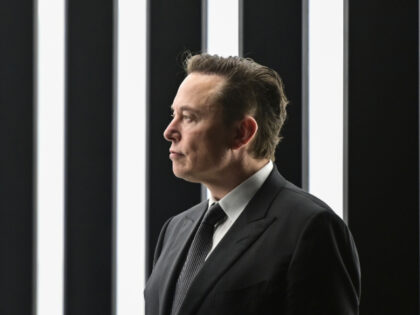
Elon Musk paid a surprise visit to China to secure Chinese government approval for the automatic driving features of his Teslas.

U.S. Treasury Secretary Janet Yellen told China that the Biden administration will “not accept” a flood of cheap industry-destroying exports.
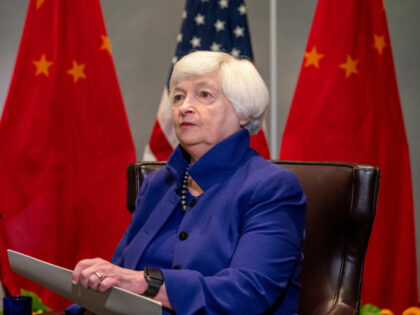
China’s effort to jump-start its economy by exporting a vast quantity of cheap manufactured products is running into unexpected resistance from the United States, European Union, and even developing nations such as Brazil and Mexico. All of these nations are concerned with market disruptions caused by a tidal wave of Chinese imports, as happened during the “China Shock” two decades ago.
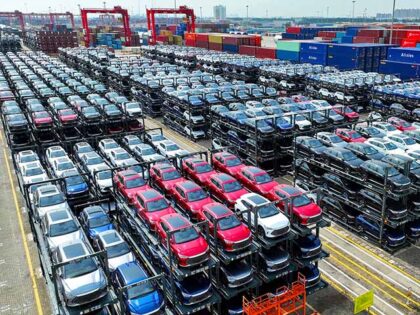
General Land Office Commissioner Dawn Buckingham says the Biden administration’s policy of blocking new exports of liquid natural gas is stealing money from Texas schoolchildren and hindering U.S. energy independence.

A secret 2022 Chinese government directive called “Document 79″ seeks to “delete America” from the Chinese high-tech market.

President Joe Biden’s State of the Union (SOTU) speech included a brief mention of China, but the language was carefully trimmed to avoid saying anything that might offend Beijing, beyond the most cursory mention of Taiwan.
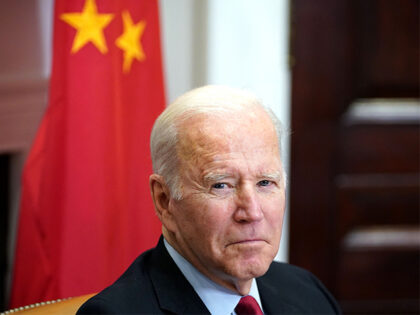
Chinese exporters are feeling the pinch of rising shipping costs due to Red Sea terrorist attacks by the Iran-backed Houthis of Yemen, to the point that Premier Li Qiang made an oblique reference to the crisis in his speech to the World Economic Forum (WEF).
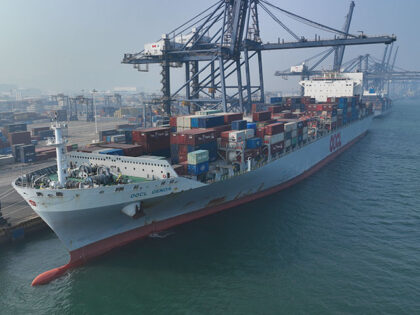
President Joe Biden issued an executive order on Wednesday that appears to restrict American investment in Chinese companies in the semiconductor, quantum computing, and artificial intelligence (AI) industries.
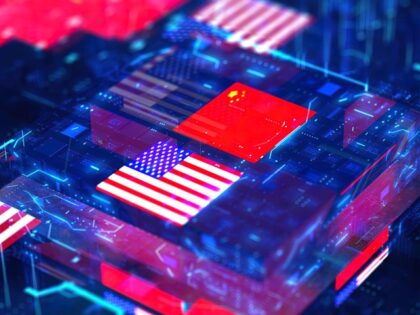
China’s faltering economy took another beating in July, as both import and export numbers came far below expectations. Imports fell 12.4 percent instead of the five-percent slide that was expected, while exports dropped 14.5 percent against an expected 12.5 percent.
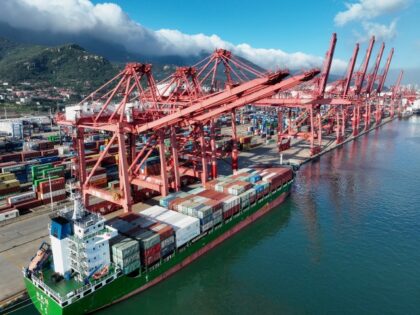
The Chinese government announced on Monday that it will tighten export restrictions on high-performance drones with potential military applications, in order to “safeguard national security and interests.”
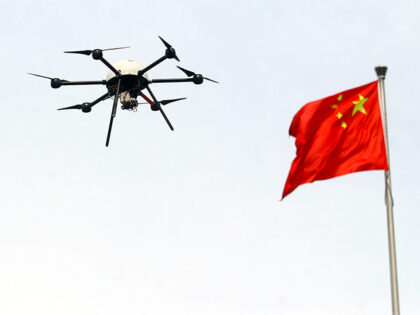
U.S. chipmaker Intel on Saturday announced the launch of its Greater Bay Area Innovation Center in the Chinese tech hub of Shenzhen.

Treasury Secretary Janet Yellen arrived in Beijing on Thursday afternoon, beginning a four-day visit that included a meeting with Premier Li Qiang on Friday.
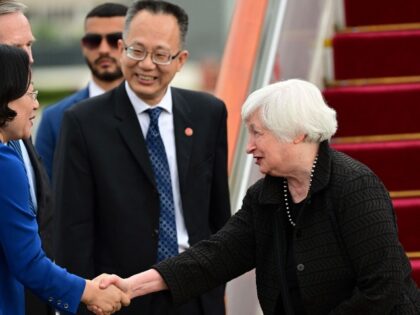
Chinese exports to the United States fell by 12.2 percent in May, a much larger drop than expected and the first net reduction since February.
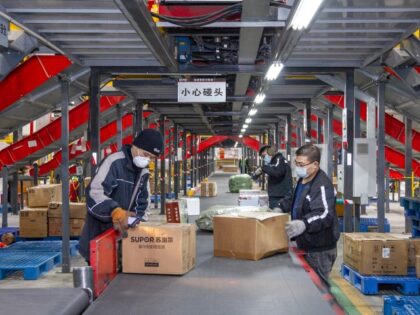
Data from two top ship tracking firms revealed that shipments of Russian crude oil to China and India, Russia’s top two buyers, rose by ten percent in May to hit record levels despite the Biden administration’s pleas to cut down on Moscow’s prodigious income stream by respecting sanctions and price caps.
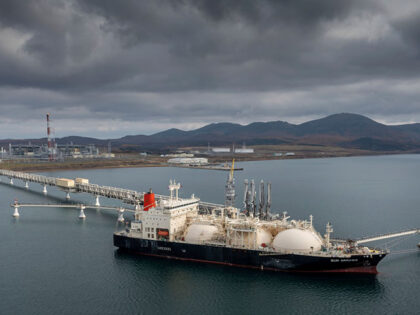
American retail titan Walmart announced Sunday that it will begin importing toys, shoes, and bicycles from Indian firms, as well as increasing its purchases of food and health products.

Indian commerce minister Piyush Goyal told attendees at an industry event on Tuesday that his country had surpassed $740 billion in goods and services exports, a record significantly higher than the $500 billion in exports that India documented between 2020 and 2021.

Excluding fuel, import prices rose 0.3 percent in January after rising 0.4 percent in December. Economists had been expecting a 0.3 percent decline.
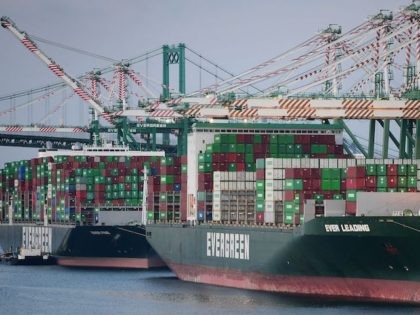
China’s trade deficit with Russia tripled in 2022, a report revealed on Friday, thanks in part to skyrocketing energy prices that made Russia’s discounted oil and gas irresistible to Chinese buyers.
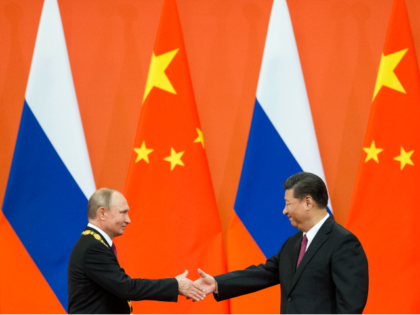
Tata Group, India’s largest multinational conglomerate, is reportedly in talks with Taiwan’s Wistron Corporation to purchase the latter’s $600 million iPhone manufacturing plant in Karnataka, India.

The nation’s trade deficit widened 5.4 percent in October to a four-month high of $78.2 billion, data from the Commerce Department showed Tuesday.

Chinese customs data for October released on Monday revealed a surprisingly steep drop in both imports and exports, the latter contracting for the first time since the early days of the Wuhan coronavirus pandemic in 2020.
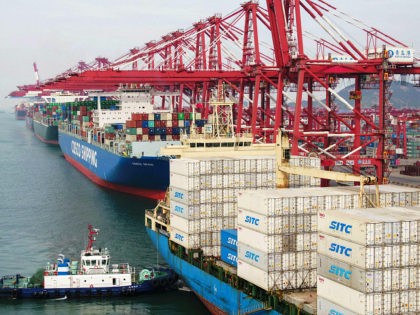
The stronger dollar hurt exports but imports fell by even more.

A strong dollar and weakening demand for imports sent the trade deficit tumbling in July.
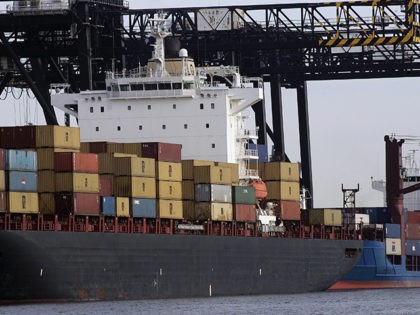
Russian energy export earnings are projected to rise nearly 40 percent year-on-year to $337.5 billion in 2022, Reuters reported Wednesday citing an official document from the Ministry of Energy of the Russian Federation.

Apple reportedly instructed its suppliers on Friday to ensure all components made in Taiwan are labeled “Taiwan, China” or “Chinese Taipei,” in accordance with speech codes enforced by the tyranny in Beijing.
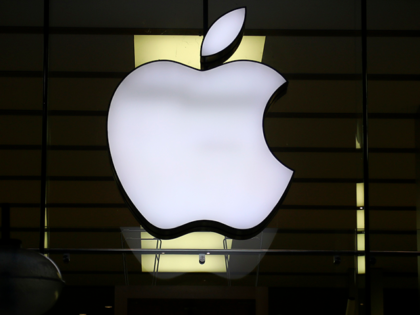
The EIA reports that the United States is the world leader in liquified natural gas exports during the first half of 2022.

Oil and natural gas trade groups released an analysis that shows economic benefits to American consumers from domestic use and exports.

Britain’s ministry of defence has predicted that Ukrainian food exports will fall by nearly two-thirds this year.

The death of 53 illegal migrants in a San Antonio trailer truck spotlights the federal government’s off-the-books policy of spiking the U.S. economy with young people extracted from poor countries.

Many millions of young Africans want to migrate from their home countries to better jobs, especially in Europe and the United States, says a survey funded by a prominent South African investor.

China’s state-run Global Times on Thursday uncorked a furious tirade against “infamous U.S. Republican anti-China senators Marco Rubio and Rick Scott” because they dared to introduce a bill called the China Oil Export Prohibition Act, which would halt American exports of oil and petroleum products to the People’s Republic of China while the U.S. struggles to get soaring fuel prices under control.
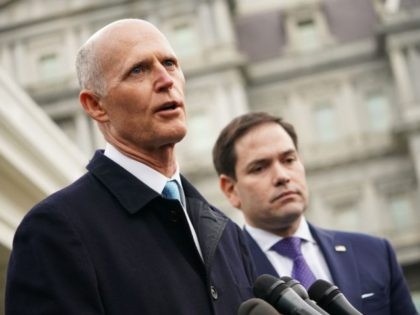
Recent OPEC oil production numbers show the cartel’s members are missing their production targets, jeopardizing President Joe Biden’s upcoming visit to Saudi Arabia to request more oil imports.
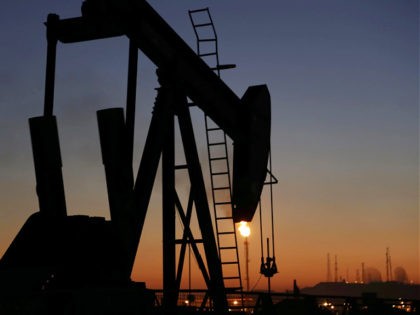
The U.S. and the West are trying to ween themselves of off Russian oil, but India, China, and other Asian countries are snapping it up.
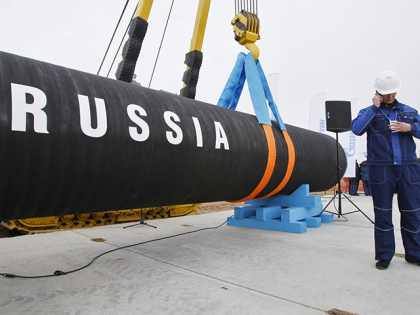
Natural gas futures prices — the contracted price for the product at future dates — hit a 13-year high driven by weather, supply and demand.

The government of Turkey recently expressed a desire to serve as a “facilitator” of a proposed export process between Istanbul, Moscow, and Kyiv that would see grains, fertilizer, and sunflower oil shipped out of Ukraine and Russia in the coming weeks, Turkey’s Hürriyet Daily News reported on Wednesday.

A source inside the Indian government said on Monday that several desperate foreign countries are pleading with India to supply over 1.5 million tons of wheat, to compensate for shortfalls from the Russian invasion of Ukraine and other factors.
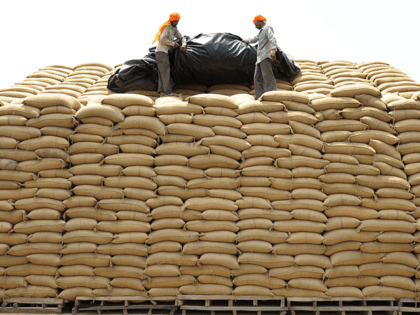
India’s Directorate-General of Foreign Trade banned wheat exports on Friday, causing market prices to skyrocket around the world and prompting expressions of grave concern from humanitarian groups

The U.S. trade deficit rose an astonishing 22 percent in March to $109.8 billion.

The world may be careering towards global famine as food insecurity spirals as Russia blocks grain exports from Ukraine.

The government of India, the world’s second-largest producer of wheat, is preparing an aggressive program to increase production and ship enough wheat to make up for the anticipated shortfall from Ukraine and Russia, Reuters claimed on Tuesday.
